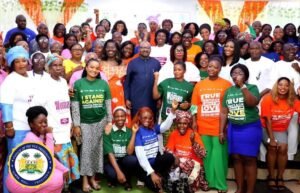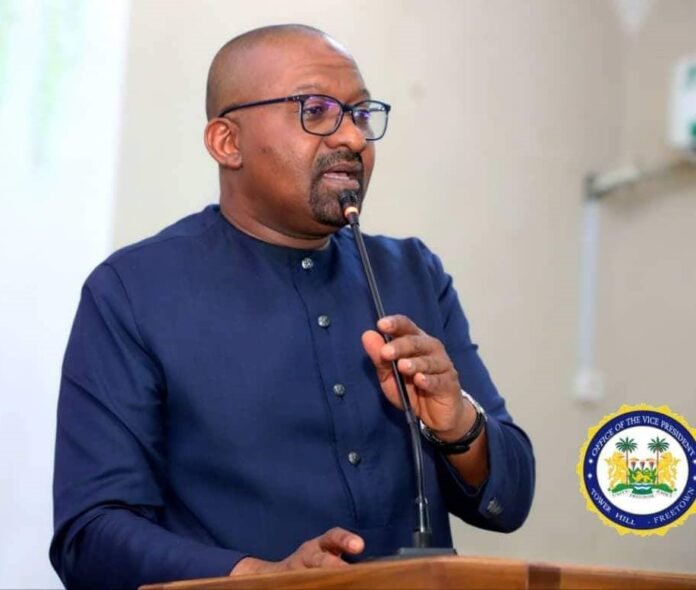The Hon. Vice President, Dr. Mohamed Juldeh Jalloh, on December 2, 2024, addressed government officials, civil society leaders, and international partners, advocating for strengthened community-driven initiatives to combat gender-based violence (GBV) in Sierra Leone. In his speech, he highlighted the nation’s progress while emphasizing the need for local-level interventions to foster lasting societal change.

Dr. Jalloh outlined significant achievements since 2018, particularly in healthcare and gender equality. He cited a substantial reduction in maternal mortality rates, from 1,007 deaths per 100,000 live births in 2018 to 448 in 2022, alongside the enactment of key legislation such as the Sexual Offenses Act and the Prohibition of Child Marriage Act.
Despite these strides, he acknowledged persistent challenges, particularly the prevalence of GBV in rural areas. He stressed the importance of addressing root causes and providing comprehensive support for survivors.
“Change happens on the ground-where people live, work, and raise families. Communities must own this fight,” Dr. Jalloh remarked.
The Vice President called for a shift from national-level strategies to localised, community-led efforts. He proposed stronger partnerships between government and non-governmental organisations to create grassroots structures capable of preventing violence and supporting survivors.
“When communities are equipped with the tools and resources to combat GBV, we will see real change,” he asserted.
Minister of Gender and Children’s Affairs, Dr. Isata Mahoi, echoed the Vice President’s call for a multi-sectoral approach. She highlighted landmark legislation such as the Domestic Violence Act and the Gender Equality Act, while underscoring the importance of their effective implementation.
Dr. Mahoi also celebrated the establishment of One-Stop Centers and the launch of the 116 Helpline, emphasizing their role in providing immediate assistance and restoring survivors’ dignity.
Deputy Minister of Social Welfare, Mohamed Hadji Kella, stressed the need to dismantle societal norms and structures that perpetuate GBV.
“Addressing GBV requires breaking the silence and challenging the culture of complicity that allows such acts to persist,” he said.
SEND Sierra Leone Country Director, Joseph Ayamga, highlighted the importance of education and public awareness in eliminating harmful practices like female genital mutilation and child marriage.

“This is not about tradition versus progress; it’s about protecting the dignity and future of every woman, girl, and child in Sierra Leone,” Ayamga emphasized.
Dr. Jalloh concluded the event by reaffirming the government’s commitment to a comprehensive, inclusive strategy to combat GBV.
“The fight against gender-based violence requires all of us—men and women, government, civil society, and the media—to act together. Together, through collective action, we will create a safer, more just Sierra Leone for all,” he declared.
The conference underscored Sierra Leone’s ongoing efforts to eradicate GBV, uniting diverse stakeholders under a shared vision of a society free from violence and discrimination.




